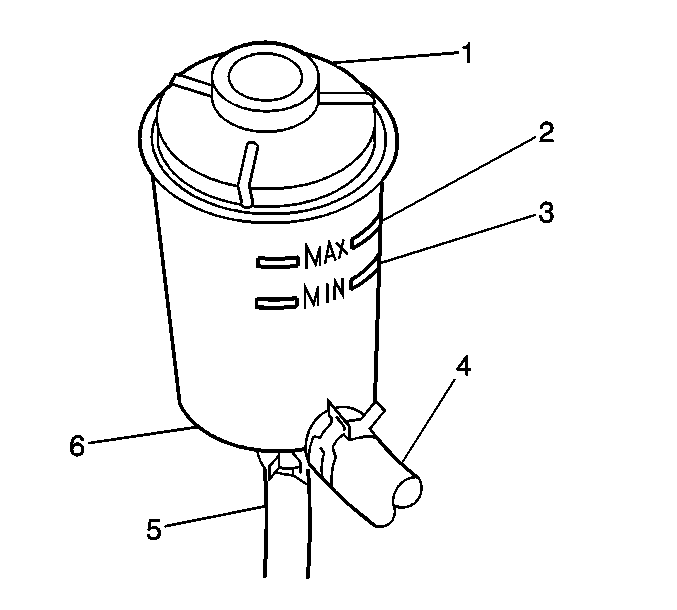For 1990-2009 cars only
- Fill the power steering fluid reservoir to the MIN mark (3). Refer to Checking and Adding Power Steering Fluid .
- Partially raise and support the vehicle in order to allow the front tires and wheels to turn freely. Refer to Lifting and Jacking the Vehicle .
- Turn the ignition switch to the ON position with the engine OFF.
- Rotate the steering wheel from full left to full right 10 to 12 times.
- Verify the fluid level is correct. Refer to Checking and Adding Power Steering Fluid .
- START the engine. Allow the engine to idle.
- Listen for power steering pump noise like whining or cavitation. Inspect the power steering fluid for aeration. If necessary, refer to Power Steering Fluid Leaks .
- Verify the fluid level is correct. Refer to Checking and Adding Power Steering Fluid .
- Repeat the bleeding procedure, if necessary.
- Turn OFF the engine.
- Lower the vehicle.
Notice: Refer to Air in the Power Steering System Notice in the Preface section.
Notice: Refer to Using Proper Power Steering Fluid Notice in the Preface section.

Important:
• Use clean, new power steering fluid only. Refer to
Fluid and Lubricant Recommendations
. • Hoses touching the frame, body, or engine may cause system noise. Verify that the hoses do not touch any other part of the vehicle. • Loose connections may not leak, but may allow air into the steering system. Verify that all of the hose connections are tight. • Maintain the power steering fluid level throughout the bleeding procedure.
